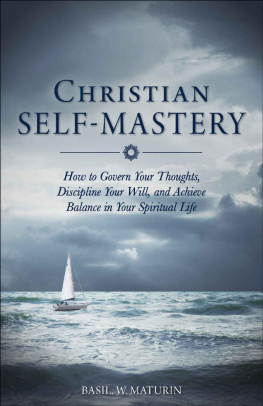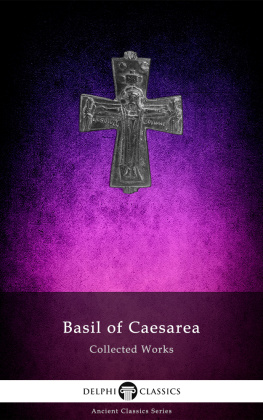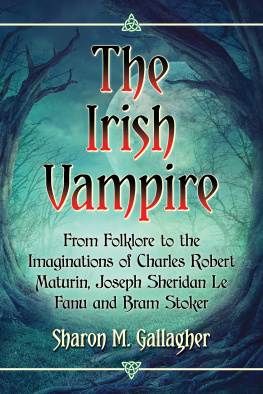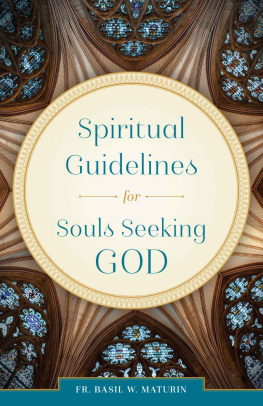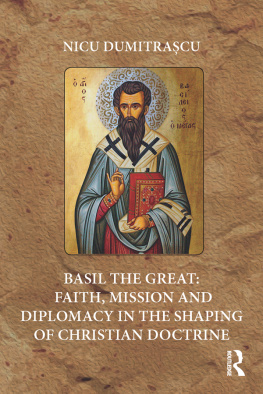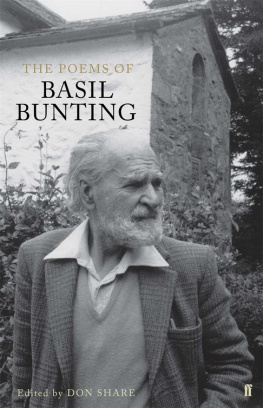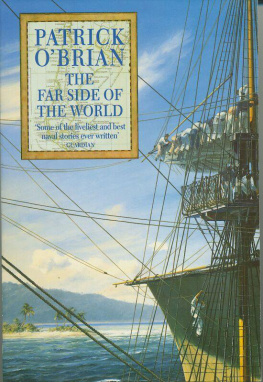Basil W. Maturin - Christian Self-Mastery
Here you can read online Basil W. Maturin - Christian Self-Mastery full text of the book (entire story) in english for free. Download pdf and epub, get meaning, cover and reviews about this ebook. year: 2013, publisher: Sophia Institute Press, genre: Science. Description of the work, (preface) as well as reviews are available. Best literature library LitArk.com created for fans of good reading and offers a wide selection of genres:
Romance novel
Science fiction
Adventure
Detective
Science
History
Home and family
Prose
Art
Politics
Computer
Non-fiction
Religion
Business
Children
Humor
Choose a favorite category and find really read worthwhile books. Enjoy immersion in the world of imagination, feel the emotions of the characters or learn something new for yourself, make an fascinating discovery.
- Book:Christian Self-Mastery
- Author:
- Publisher:Sophia Institute Press
- Genre:
- Year:2013
- Rating:5 / 5
- Favourites:Add to favourites
- Your mark:
- 100
- 1
- 2
- 3
- 4
- 5
Christian Self-Mastery: summary, description and annotation
We offer to read an annotation, description, summary or preface (depends on what the author of the book "Christian Self-Mastery" wrote himself). If you haven't found the necessary information about the book — write in the comments, we will try to find it.
Christian Self-Mastery — read online for free the complete book (whole text) full work
Below is the text of the book, divided by pages. System saving the place of the last page read, allows you to conveniently read the book "Christian Self-Mastery" online for free, without having to search again every time where you left off. Put a bookmark, and you can go to the page where you finished reading at any time.
Font size:
Interval:
Bookmark:
Christian Self-Mastery
How to Govern Your Thoughts, Discipline Your Will, and Achieve Balance in Your Spiritual Life
Basil W. Maturin
SOPHIA INSTITUTE PRESS
Manchester, New Hampshire
Christian Self-Mastery is an abridged edition of Self-Knowledge and Self-Discipline (Paterson, New Jersey: St. Anthony Guild Press, 1939) and includes minor revisions to the original text.
Copyright 2001 Sophia Institute Press
All rights reserved
Printed in the United States of America
Jacket design by Lorraine Bilodeau
On the jacket: Profile of a Man Praying, SW Productions/PhotoDisc.
No part of this book may be reproduced, stored in a retrieval system, or transmitted in any form, or by any means, electronic, mechanical, photocopying, or otherwise, without the prior written permission of the publisher, except by a reviewer, who may quote brief passages in a review.
Sophia Institute Press
Box 5284, Manchester, NH 03108
1-800-888-9344
www.SophiaInstitute.com
Nihil obstat:
C. Schut, D.D., Censor Deputatus
Imprimatur:
Edm. Can. Surmont, Vicarius Generalis
Westminster, October 28, 1915
Christian self-mastery : how to govern your thoughts, discipline your will, and achieve balance in your spiritual life / Basil W. Maturin. Abridged ed.
p. cm.Rev. ed. of: Self-knowledge and self-discipline. 1939.
Includes bibliographical references.
ISBN 1-928832-21-0 (pbk. : alk. paper)
1. Christian life Catholic authors. 2. Spiritual life Catholic Church. I. Maturin, B. W. (Basil William), 1847-1915. Self-knowledge and self-discipline. II. Title.BV4501.2.M387 2001
248.482 dc212001020102
Editors note: The biblical quotations in the following pages are taken from the Douay-Rheims edition of the Old and New Testaments. Where applicable, biblical quotations have been cross-referenced with the differing names and enumeration in the Revised Standard Version, using the following symbol: (RSV =).
Chapter One

Develop self-knowledge
There are two spheres of knowledge in which everyone who is endeavoring after any growth in the spiritual life must be making some advance: the knowledge of God and the knowledge of self. We can all readily perceive the necessity of growth in the knowledge of God as essential to any development of the spiritual life. The connection is obvious. This, said our Lord, is eternal life, that they may know Thee, the only true God, and Jesus Christ whom Thou hast sent.
A certain moral sympathy is absolutely necessary as a condition of friendship, and holiness consists in friendship with God. If we would be in any sense the friends of God, we must have at least that desire for holiness without which such friendship would be impossible; the growth in the knowledge of God is the deepening of this friendship. If we say that we have fellowship with Him and walk in darkness, we lie, and do not the truth.
But the knowledge of self is as necessary for the spiritual life as is the knowledge of God. It is at once a condition and an effect of this knowledge. The more we grow in the knowledge of God, the deeper our knowledge of self, and if we would attain to any knowledge of God, there must be some knowledge of self. When Isaiah saw the Lords glory in the Temple, there was at once a deepening sense of his own sinfulness: Woe is me... because I am a man of unclean lips... and I have seen with my eyes the King, the Lord of hosts. For the soul is created in the image of God, and it cannot approach His presence without perceiving how unlike it is to Him in whose image it was made.
To know God is to know self. To have no knowledge of God is to walk in darkness, to have no absolute standard by which to gauge and measure yourself. Those who shut God altogether out of their lives are able to live in stupid if not happy ignorance of what failures their lives are.

We do not really know ourselves
Yet there are few things more surprising, when we come to think of it, than our ignorance of ourselves. It is more than ignorance, for ignorance means only failure in knowledge, but we go beyond that: not only are many of us ignorant of a great part of our own character, but we often imagine ourselves to be quite different from what we are. It would seem almost impossible that it should be so, if we did not know it to be only too true.
How is it possible for a man to close his eyes to the most patent and pressing facts connected with himself, involving the gravest consequences, which are perfectly evident to everyone except himself? We are often amused by hearing others give their opinion of themselves and their gifts and powers. We are amused sometimes amazed that their estimate is so utterly different from what those who have only a very slight knowledge of them can see at a glance to be the true one. We hear people boast of gifts that everyone but themselves knows they do not possess. On the other hand, we see men of great powers and influence tormented with an almost morbidly low estimate of their own capacity.
Yet we do not consider that perhaps we are as completely mistaken in our judgment of ourselves. Most of us have at some time been accused of some fault in our character that we repudiated at the time with indignation begotten of the sincere conviction that the accusation was untrue, and yet perhaps years afterward we found ourselves mistaken and that the criticism was correct. How is it possible that such a thing should be?
Listen to two friends discussing and criticizing one another. What is more common than the tone of protest or repudiation with which some fault or some virtue is discussed? Yet do we not feel naturally inclined to say, Surely the man must know himself better than his friend can know him. If he says he hasnt that gift or fault, who can know whether he has or not better than he? We do not say this aloud, because experience has proven to us how often the critic is right, and that in many cases a man is the worst judge of himself.
Indeed we may have a very deep knowledge of human character in general, and yet be profoundly ignorant of our own character. We look with the same eyes, yet the eyes that pierce so easily through the artifices and deceptions of others become clouded and the vision becomes disturbed when they turn inward and examine self. Moreover, it is to be remembered that self-knowledge has nothing to do with mere cleverness or intellectual insight, but is largely, if not entirely, moral.
When we consider how intensely self-conscious is the age in which we live, and the amount of time most people spend on themselves in one way or another, what an absorbingly interesting study is that of the human heart, and all the more interesting when it is our own. We are amazed that most of us are nevertheless so lacking in self-knowledge that very often our latest acquaintance could tell us things about ourselves that we would refuse to believe yet they are undoubtedly true.

We dont know what keeps us from God
No sooner do we become thoughtful and begin to pray and try to get near God than all this comes upon us with an overwhelming sense of incapacity. How are we to advance? What are we to struggle with? Deep shadows are seen to lie across the soul, but we cannot tell what casts them. We feel held back from God, but we cannot grasp and bring to light what it is that holds us back.
We know well, indeed, some one or two prominent sins that have dogged our lifes path for years, and against these we struggle bravely and are conscious that God is helping us. But of these we are now scarcely afraid; such faults are visible, tangible, in a sense healthy, inasmuch as they can be met and fought face-to-face.
Next pageFont size:
Interval:
Bookmark:
Similar books «Christian Self-Mastery»
Look at similar books to Christian Self-Mastery. We have selected literature similar in name and meaning in the hope of providing readers with more options to find new, interesting, not yet read works.
Discussion, reviews of the book Christian Self-Mastery and just readers' own opinions. Leave your comments, write what you think about the work, its meaning or the main characters. Specify what exactly you liked and what you didn't like, and why you think so.

